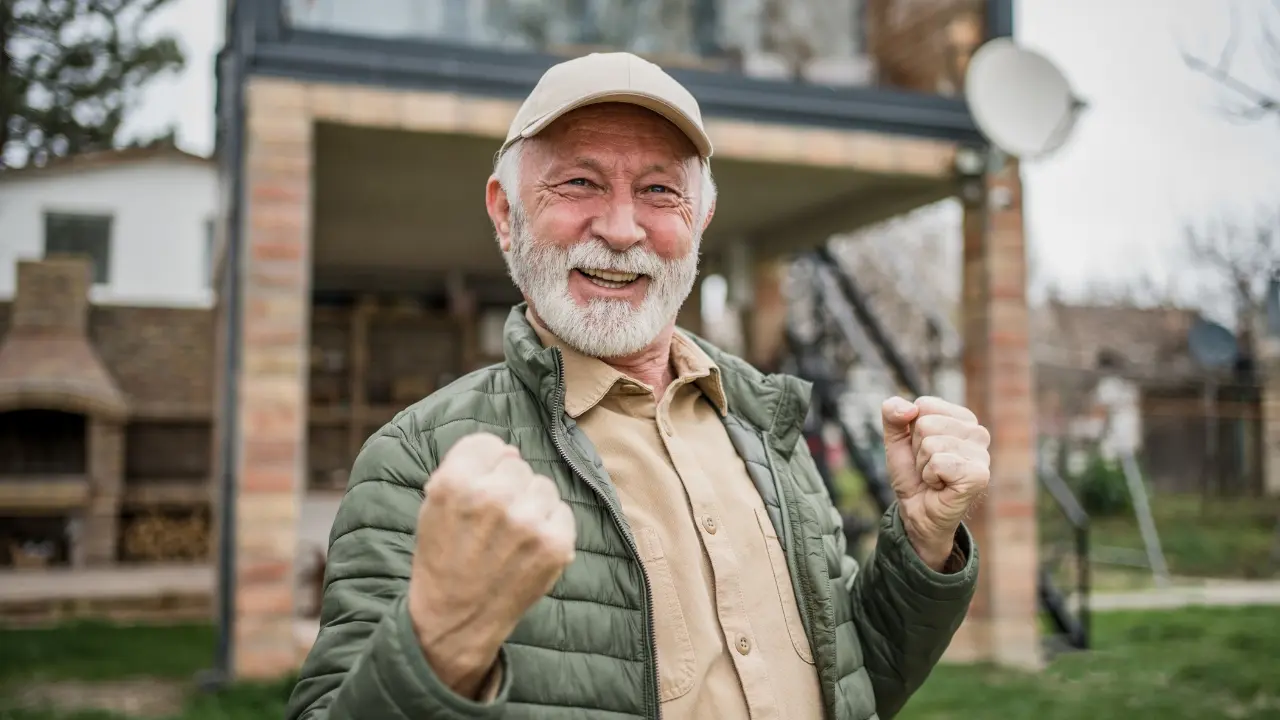It was just a candid photo—me, sitting quietly on the stairs that Christmas. Nothing posed, nothing planned. But somehow, that single image captured everything I couldn’t say out loud.
I looked vacant. Withdrawn. Lost in thought.
No smile, no warmth—just a quiet sadness.
That year, my wife and I were hosting family, like we always did. Christmas had always been a season I loved—the lights, the rituals, the food, the laughter. But most of all, the togetherness. I had looked forward to it. But when it arrived, something felt… off. A heaviness had settled in.
I watched as my family unwrapped gifts, shared stories, and filled the room with warmth and laughter. And yet, I felt completely detached. I smiled when it was expected. I played the role of host. But inside, I felt like I was drowning. And no one knew.
For years, I blamed these feelings on seasonal affective disorder. The short days had always hit me hard—but this time was different. This was deeper.
Work had become unbearable. I was in a high-pressure financial role that looked good on paper but left me completely empty. It clashed with my values. I felt trapped—drained and directionless, desperate for change but unsure where to turn.
At the same time, I was grieving. We had recently lost my father-in-law after a long and painful battle with cancer—a loss that shook our entire family. Not long after, we said goodbye to our dog of 12 years. His passing gutted me in a way I hadn’t expected.
Grief. Burnout. Disconnection.
This wasn’t just winter blues—it was something more.
And that photo became a mirror I couldn’t ignore.
For the first time, I saw just how far I’d slipped.
That moment became a turning point.
I opened up to my wife. She had sensed something was wrong and gently encouraged me to talk to someone. But who? I’d never been to therapy. I imagined awkward conversations and sterile rooms. And truthfully, I was embarrassed to admit I was struggling.
I wasn’t ready to talk to friends. So, I turned to the internet.
That’s how I found SamaraCare — a nonprofit offering compassionate, judgment-free mental health support. It felt right. I called and asked to speak with a male therapist, hoping to connect with someone who might understand the unique pressures I was facing.
That phone call changed my life.
From the first session, my counselor made me feel seen. Heard. Safe. There was no pressure to perform—just space to be honest. With empathy and patience, he helped me navigate the tangled mess of burnout and grief.
Week by week, we built trust. And slowly, I began to heal.
Therapy helped me name the pain I’d been carrying. It gave me tools to cope, clarity to make decisions, and space to rediscover myself.
A year later, I left the job that had been draining me. I stepped into a new career—one more aligned with who I am, even if it came with a smaller paycheck.
The result? I’m happier. Truly, deeply happier.
My wife noticed it first. She said I felt like a different person—more present, more grounded, lighter.
And I’ve made peace with the losses I once couldn’t face. I remember my father-in-law and our dog with love, not just sorrow.
Looking back, asking for help was one of the most important decisions I’ve ever made. Therapy gave me the strength to face what I was carrying, the courage to change my life, and the grace to grow through it.
Today, the photos tell a different story.
My smile is real. My eyes are bright again.
And for that, I’m deeply grateful—to my therapist, to SamaraCare, and to the version of me who finally picked up the phone.





